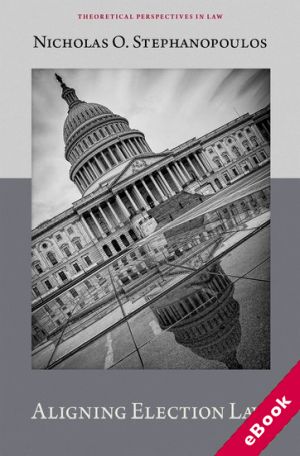
The device(s) you use to access the eBook content must be authorized with an Adobe ID before you download the product otherwise it will fail to register correctly.
For further information see https://www.wildy.com/ebook-formats
Once the order is confirmed an automated e-mail will be sent to you to allow you to download the eBook.
All eBooks are supplied firm sale and cannot be returned. If you believe there is a fault with your eBook then contact us on ebooks@wildy.com and we will help in resolving the issue. This does not affect your statutory rights.
Alignment between governmental outputs and popular preferences is a core democratic value. For the people genuinely to rule, their government should heed their wishes. Yet alignment is not appreciated by election law scholarship, much of which focuses on other democratic goals. Nor do the courts consider alignment when deciding election law cases. Aligning Election Law fills this gap, providing a new theoretical perspective on election law and showing how alignment theory would operate in practice, in both litigation and legislation.
Nicholas O. Stephanopoulos examines alignment from a variety of angles, including its democratic value, its place in legal doctrine, its rarity in modern American politics, and its application to particular election law topics. The book also engages with issues facing American constitutional law and society, including voting restrictions, political parties, partisan gerrymandering, minority representation, and campaign finance, and how alignment theory would tackle these. The book's orientation is normative, suggesting how judicial (and nonjudicial) institutions should approach electoral regulations, not how they have addressed them in the past.
By thoroughly canvassing the democratic theory, empirical political science, and election law literatures, the book argues that alignment should be a tenet of the law of democracy. Accordingly, Aligning Election Law will be valuable not just to students hoping to get a 'big picture' grasp of election law, but to anyone wishing to understand how the law of democracy could better achieve the values of democracy.